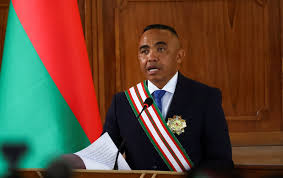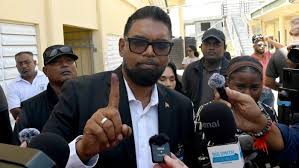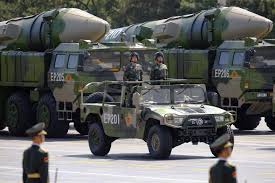Madagascar’s new leader, Colonel Michael Randrianirina, has officially been sworn in as President following a military takeover that ousted former President Andry Rajoelina.
The swearing-in ceremony took place on Friday, October 17, 2025, at the High Constitutional Court in Antananarivo, the nation’s capital.
The event was marked by military parades, cheers from supporters, and blaring trumpets, as Randrianirina took the oath to “defend national unity and human rights.”
“I will fully, completely, and justly fulfill the high responsibilities of my position as President of the Republic of Madagascar,” he declared before a crowd of soldiers and dignitaries.
The takeover came after weeks of youth-led protests, largely driven by frustrations over power outages, water shortages, and rising poverty. Many of the demonstrators, mostly from the Gen Z generation, accused the former government of corruption and neglect.
Former President Andry Rajoelina, who came to power through a coup in 2009 and was later elected, fled the country before lawmakers voted to impeach him. From exile, he has condemned the army’s move and insists he remains the rightful leader.
Meanwhile, the African Union (AU) and the United Nations (UN) have condemned the coup, calling for a return to constitutional order.
Randrianirina, who commands the elite CAPSAT military unit, announced that a transitional military-led committee will govern the country for up to two years before holding new elections. However, analysts remain skeptical about the timeline.
“Promises to hand over power are often meaningless without real safeguards,” warned Ketakandriana Rafitoson, Vice Chair of Transparency International Madagascar.
Despite the celebratory mood at the swearing-in, some protesters expressed unease about the army’s growing influence.
“We wanted change, not another military regime,” said Mioty Andrianambinintsoa, an 18-year-old student who took part in the protests. “This is only the beginning. We still want leaders who care about the people.”
Madagascar has faced repeated cycles of political instability since independence in 1960, often triggered by economic hardship and inequality.
The country remains one of the poorest in the world, despite its rich natural resources such as vanilla, nickel, and sapphires.
According to the World Bank, more than 75% of the population lives in poverty, and the average income is below $600 a year. Many citizens say they hope the new government will prioritize economic reform and basic services.
As Colonel Randrianirina takes charge, Madagascar stands at a crossroads — between the promise of stability and the risk of prolonged military rule.



